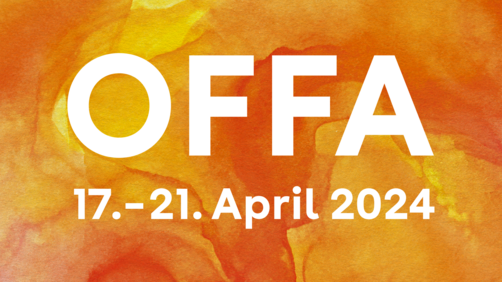Events - 23.11.2011 - 00:00
oikos Conference 2011
How can enterprises create sustainable value? This is what students discussed with representatives of Migros, Unilever and Swissaid at the oikos Conference at the HSG on 18 November 2011.
22 November 2011. 200 students met at the University of St.Gallen on 17 and 18 November in order to debate challenges in the economy and ecology with representatives from trade and industry and from politics. With the oikos Conference, students have provided a platform for discussions about sustainable development in the economy and in society since 1988. This year, the workshops focused on a sustainable water supply, the ecological production of foodstuffs and ethically sustainable asset management.
Financial investments with a conscience
Why the financial market has something to do with hunger and thirst was explained by Antoinette Hunziker-Ebneter, the founder of a company for sustainable asset management and former CEO of the Swiss Stock Exchange. Her firm, Forma Futura Invest, invests in assets that set great store by a high degree of social and ecological responsibility and demonstrate a transparent corporate governance. In its report on the first conference day, the St.Galler Tagblatt quotes Hunziker-Ebneter as saying: “We try to distinguish between whether a firm has a sustainable business strategy or whether it implements sustainability as a trend, i.e. practises so-called greenwashing.”
Access to drinking water for everyone
In a panel discussion at the end of the conference, four speakers dealt with the question as to how sustainability can be guaranteed along all the levels of the value creation chain. Caroline Morel, Executive Director of the Swissaid organisation, pleaded for less water consumption in the production of foodstuffs, particularly meat. Markus Abt, a member of the Executive Board of Unilever Switzerland, mentioned coordinated drip irrigation as an important efficiency factor in agricultural practice. The fact that enterprises should exploit their influence on consumers in order to stimulate sustainable consumption was underlined by Johann Züblin, Deputy Head of the Issue Management and Sustainability Division of the Migros Cooperative Association. “30 per cent of foodstuffs in Switzerland are binned”, he said, “which is a clear indication that companies ought to do more to promote sustainable consumer behaviour.”
Firms as political actors
In a globalised economy, companies had long taken on the role of political actors, said Florian Wettstein. The Professor of Business Ethics at the HSG emphasised that companies ought to exercise their social responsibility more strongly in countries of production (cf. also online commentary of 24 October 2011). Thus enterprises had the possibility, for instance, of setting standards for sustainable working and living conditions. He named the right of access to the vital resource of water as an example of a norm that would have to be established in agricultural and corporate practice. Züblin added that when it came to water, drawing the boundary between fundamental right and property right was difficult.
Less meat and packaging
To conclude the discussion, students from the audience proposed their ideas as to how Migros, Unilever and Swissaid could further promote sustainability. Enterprises should continue to increase cooperation with local partners such as Oxfam and other NGOs in order to guarantee sustainable standards in agricultural practice and to ensure access to clean water in the country of production. The audience also saw a potential when it came to a reduction in product packaging. A clearer labelling of products as an ecological signpost to combat “labelling confusion” was also mentioned. As an alternative to the so-called sustainability index, Migipedia provided Migros customers with a grading system through the firm’s website, added Züblin. Food producers and catering establishments could make vegetarian options look more attractive in order to give more prominence to meatless nutrition, a female student suggested. To wind up the panel discussion the moderator, Dr. Arthur Braunschweig, invited both the speakers and the audience to continue the dialogue through the oikos network.
Photo: Oikos St.Gallen / Robert Stürmer
More articles from the same category
Discover our special topics











